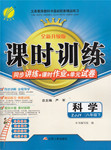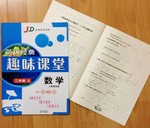题目内容
【题目】阅读下面材料,在空白处填入适当的内容(1个单词)或括号内单词的正确形式。(共10小题:每小题1.5分,满分15分)
Last October , while tending her garden in Mora , Sweden , Lena Pahlsson pulled out a handful of small (carrot) and was about to throw them away. But something made her look closer , and she noticed a (shine) object. Yes, there beneath the leafy top of one tiny carrot was her long-lost wedding ring.
Pahlsson screamedloudly that her daughter came running from the house. “she thought I had hurt(I),”says Pahlsson
Sixteen years(early), Pahlsson had removed the diamond ring (cook) a meal. When she wanted to put the ring back on later, it was gone. She suspected that one of her three daughters —then ten, eight, and six— had picked it up, but the girls said they hadn't. Pahlsson and her husband (search) the kitchen, checking every corner, but turned up nothing. “I gave up hope of finding my ring again," she says. She never replaced it.
Pahlsson and her husband now think the ring probably got (sweep) into a pile of kitchen rubbish and was spread over the garden, it remained until the carrot's leafy top accidentally sprouted (生长) through it. For Pahlsson, its return was wonder.
【答案】carrots;shiny/shining;so;myself;earlier;to cook;searched;swept;where;a
【解析】本文是一篇记叙文。主要讲述了Lena Pahlsson在花园里采摘胡萝卜时,找到了丢失已久的结婚戒指的那种失而复得心情。
⑴句意:去年十月,在Pahlsson在整理花园的时候,她拔出一把小胡萝卜正要扔掉。a handful of+复数名词,故填carrots。
⑵句意:但是有东西使得她凑近仔细看,她注意到了一个闪光的物体。修饰名词object,故用形容词shining。
⑶句意:Pahlsson 尖叫的如此大声以至于她女儿从屋里跑出来,so+形容/副词+that……如此……以至于。故填so。
⑷句意:“她以为我伤到了自己。”主语与宾语是同一人,故用反身代词myself。
⑸句意:十六年前,故用比较级earlier。
⑹句意:Pahlsson 退掉钻戒去做饭。表示目的,故用不定式to cook。
⑺句意:Pahlsson 和他的丈夫在厨房找遍了,检查了每一个角落,但是一无所获。此处是句子的谓语,讲述过去发生的事,故填一般过去时searched。
⑻句意:Pahlsson 和她的丈夫现在认为这个戒指很可能被扫到厨房的一堆垃圾里面,被撒在花园里了。get+过去分词,故填swept。
⑼句意:戒指一直在那儿,直到胡萝卜的叶子意外地穿过它长出来。此处是定语从句,先行词是the garden,故填where。
⑽句意:对于Pahlsson 来说,戒指的回归真是一个奇迹。故填a。

 课时训练江苏人民出版社系列答案
课时训练江苏人民出版社系列答案 黄冈经典趣味课堂系列答案
黄冈经典趣味课堂系列答案 启东小题作业本系列答案
启东小题作业本系列答案【题目】根据短文内容,从短文后的选项中选出能填入空白处的最佳选项。选项中有两项为多余选项。
Lots of people find it hard to get up in the morning and put the blame on the alarm clock. In fact, the key to easy morning wake-up lies in resting your body clock Here is how to make one.
● In order to make a change, you need to decide why it's important. Do you want to get up in time to have breakfast with your family, get in some exercise, or just be better prepared for your day? Once you are clear about your reason, tell your family or roommates about the change you want to make.
● Rethink mornings. Now that you know why you want to wake up, consider re-arranging your morning activities. If you want time to have breakfast with your family, save some time the night before by setting out clothes, shoes, and bags.That's a quarter-hour more you could be sleeping if you bought a coffee maker with a timer.
● Keep your sleep/wake schedule on weekends. If you're tired out by Friday night, sleeping in on Saturday could sound wonderful. But compensating on the weekends actually feeds into your sleepiness the following week, a recent study found.
● Keep a record and evaluate it weekly. Keep track of your efforts and write down how you feel. After you've tried a new method for a week, take a look at your record.If not, take another look at other methods you could try.
A. Get a sleep specialist. |
